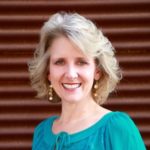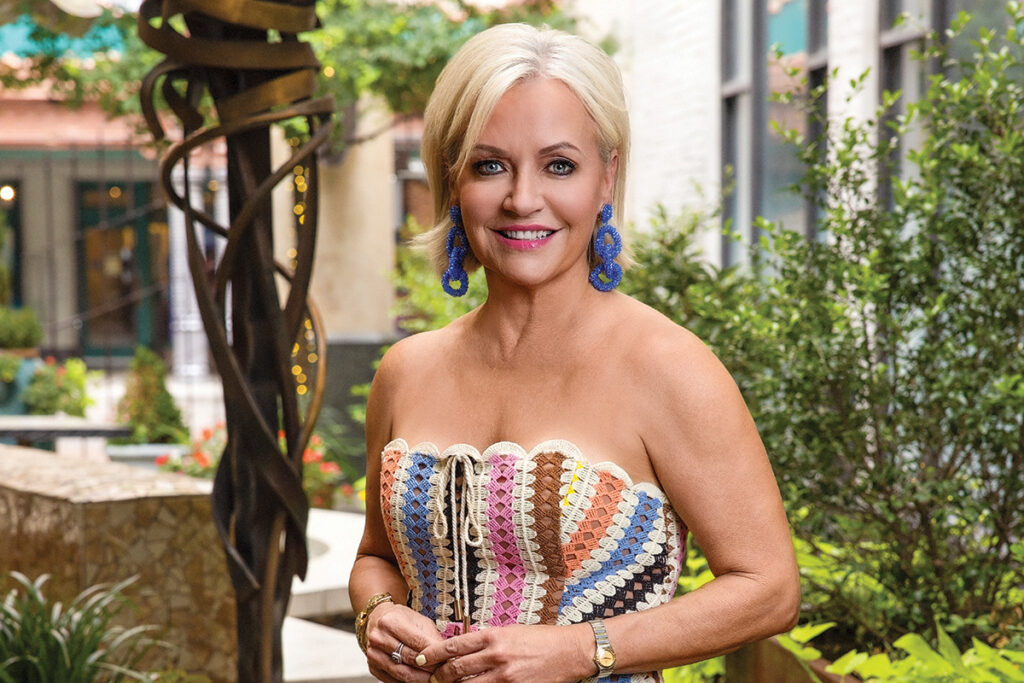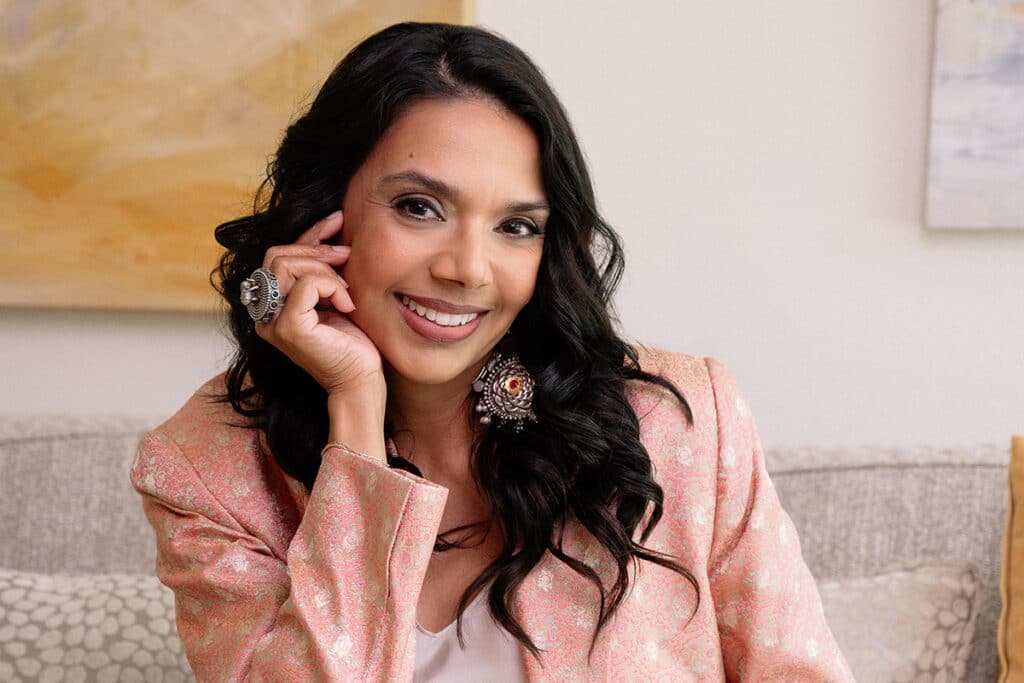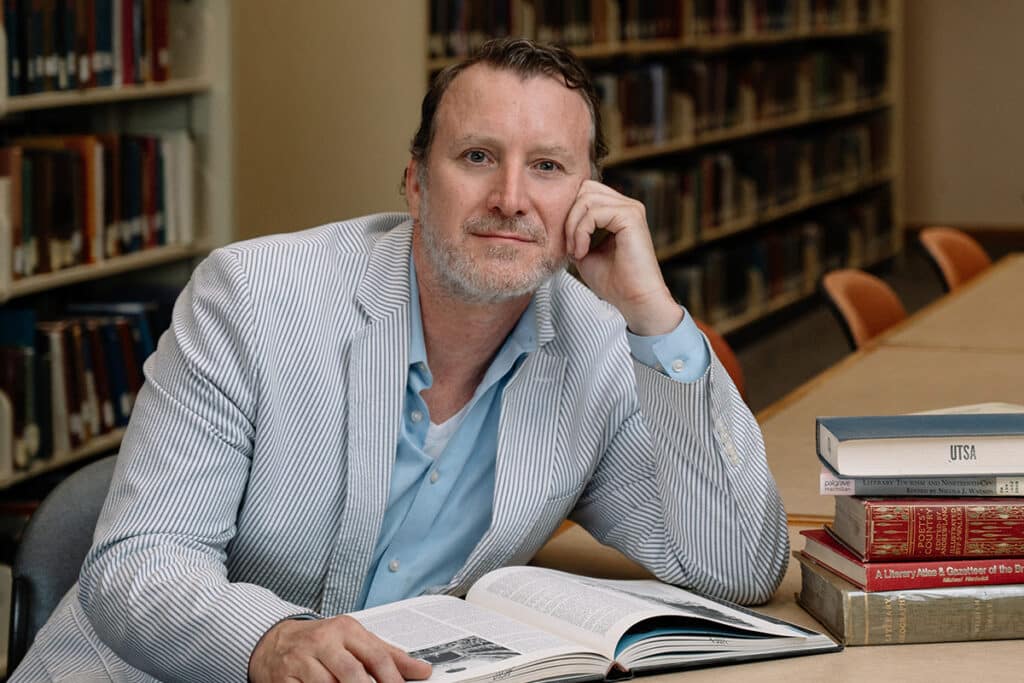
Photography by Suzanne Pack
Taking A Positive Approach to Life.
Philanthropist. Community activist. Special needs mom. Breast cancer survivor. Recovering alcoholic. The list of titles Maggie Hartman, co-founder of the Gordon Hartman Family Foundation, answers to might surprise those who only know her as “Morgan’s mom.”
That’s Morgan, the now 30-year-old who inspired Maggie and her husband Gordon to create San Antonio’s Morgan’s Wonderland, the world’s first Ultra-Accessible™ fully accessible theme park. With 25 wheelchair-accessible attractions, the park has welcomed more than 2.3 million guests from all 50 states and 121 countries. It was the start of what has become Morgan’s, the umbrella organization that oversees all of the endeavors where individuals of all ages and abilities can come together for recreation and a better understanding of one another.
It’s a challenge that Hartman knows well from personal experience. Sometimes, other children and parents didn’t accept Morgan because they didn’t understand her. “She’d be in a playgroup, or I’d take her to a park. I had one woman question why Morgan was playing with the kids. ‘This is for children.’ She was nine but looked like a teenager. When I explained that she was nine, she asked if I was sure. Yes, I pretty much gave birth to her nine years ago. I’m sure.” She said.
“Accessibility doesn’t just pertain to people in wheelchairs. Accessibility pertains to all people who have special needs and that includes cognitive disabilities,” she explains. The Gordon Hartman Family Foundation was created to realize their dream of helping people of all ages with cognitive and physical disabilities.
Since 2005, the foundation has assisted more than 600 nonprofit agencies through monetary grants, sponsorships, special events, and other resources. Morgan’s Wonderland opened in 2010 and has sparked multiple initiatives to help people of all abilities, including a splash park, a sports complex, a year-round Camp, Morgan’s MAC, and The Multi-Assistance Center, which is revolutionizing care for individuals with disabilities. It is a coordinated approach to providing medical and non-medical services to children and adults with disabilities and special needs, all overseen by a Navigator who partners with these families to develop a comprehensive, coordinated care plan.
The family was focused on finding ways to help the special-needs community when Maggie learned she had breast cancer. Found early during her annual mammogram, she successfully fought the disease through surgery and chemotherapy.
“I have a sister who died when she was 43 of HER2 Positive Breast Cancer – the same type of breast cancer I had. But luckily for me, when I got it, they now have a drug that attacks just the specific proteins in the blood that cause it to be HER2 Positive,” she explains.
The loss of her sister and her own experience have made her a staunch advocate for early detection and treatment. She’s an ardent supporter of ThriveWell Cancer Foundation and WINGS (Women Involved in Nurturing, Giving, Sharing), both working to assist South Texans dealing with cancer. She believes she is a living testament to the power of medical advancements in overcoming the disease.
“Early detection is so important. And that’s not just for breast cancer. I know people who say, ‘Let’s wait and check it.’ No. Let’s not wait and see what it does. Biopsy it. Even just a needle biopsy. Be proactive. The advances they’ve made in cancer research are amazing. More people live with it than die from it. I’ve been cancer-free for ten years.”
A lifelong San Antonian, Hartman was working in the mortgage business when she met Gordon on a “visually impaired” date. “Not a blind date,” she laughs. Set up through a friend, their first date was a Spurs game. “Like we like to say, the rest is history. We’ve had our ups and downs, but it’s wonderful. Don’t tell him I said this; he’s not perfect,” she laughed, explaining, “We tease each other so badly because our families do it, and it’s just fun. And we are goofy. And Morgan’s goofy. It’s just part of who we are.”
That goofiness makes chatting with her a breeze, despite the serious topics she addresses head-on. She doesn’t shy from discussing her battle with alcoholism. “I am a recovering alcoholic. I have been sober for six years, and I am so grateful that I am,” crediting Alcoholics Anonymous (AA) for her sobriety. “People say, ‘I just came in to get sober,’ but it’s not just getting sober. It’s a life program. It changes the way you look at things and how you react to things.
“I think the last six years, I’ve gotten to be a better person. When I was 40, I stopped drinking and went to a meeting. I didn’t stick with it. For 12 and a half years, I was what you call dry drunk. It’s somebody who doesn’t work a program, doesn’t do anything. And I just built up resentments. I ended up having a nervous breakdown, and I started drinking again. And then I found out I had breast cancer. But I did not let a little thing like chemotherapy stop me from drinking – not my proudest moment,” she openly admits. “And I was mad at Gordon for working all the time, mad at Morgan for having special needs. I was just a horrible, horrible person for twelve and a half years.”
Six years ago, she found the right AA meeting. “When I came into AA, it just made me a better person. Step four (of AA’s 12-step program) is making a searching moral inventory of yourself. I wrote down everyone I was mad at, what they did, and asked – why am I mad? What’s my part? And you’re like, oh, I did that. Oh yeah, I did do that. And you have to tell your sponsor. You don’t want to tell anybody that. But the steps really get you to look at yourself.”
She’s honest with herself and attends meetings every day. “I’m not a perfect person, but I’m a lot better than I used to be. I’m calmer.”
She’s also discovered transcendental meditation and yoga. “It really helps calm me down. It’s having that time to yourself, to where you can face the day knowing that you’ve centered yourself. That is so important. I think that is important to every woman and every person. And you need to take care of yourself because if you don’t take care of yourself, you’re not going to be any good to anybody.
“I’ve learned that I can just do my best, I can just be the best person I can be, which is not always going to be great all the time.
“I try to look at things with a positive outlook and know that people are going to be the way they are. I can’t change anybody else. I can change some situations, but not everything, and just try to be me. It’s been really hard because I was always a people pleaser, and I’m not that anymore.”
She’s open about her alcoholism to help others. “When people ask me why I’m not drinking, I always tell them I’m in recovery. Because if I can just say that to one person and they don’t drink or they realize they have a problem, then that’s all that matters. I’m not ashamed to be an alcoholic. I have an allergy to alcohol. I can’t drink it. They did a test at Mayo Clinic where they had an alcoholic and then a non-alcoholic consume a drink, and the alcoholic’s pleasure center of their brain lit up a lot brighter than the non-alcoholic. I process alcohol differently than you do, and I accept that.
“And I have found that I don’t need alcohol. I don’t need alcohol to be goofy because I thought, ‘Wow, I’m going to be a normal person now.’ Wrong! But I revel in my goofiness. I’m happy, and it’s part of what made me who I am today and made me, in my opinion, a better person. The six years I’ve been sober have been the best six years of my life. They haven’t been the easiest. It’s living life on life’s terms. It’s not going to be perfect.”
“Be true to yourself. And it’s taken me a good 64 years to get to this point. It’s really just in the last year or so that I’ve really realized that I’m just going to be me. And if people don’t like me, that’s OK. If they do like me, that’s even better. But I’m not going to be a person who is false. It’s just what you see is what you get. I’m a very blessed person who has a wonderful husband, an amazing daughter, and the cutest dog [Blu, a miniature Bernadoodle] you’ll ever want to see. I just am in a very happy, good place.”





